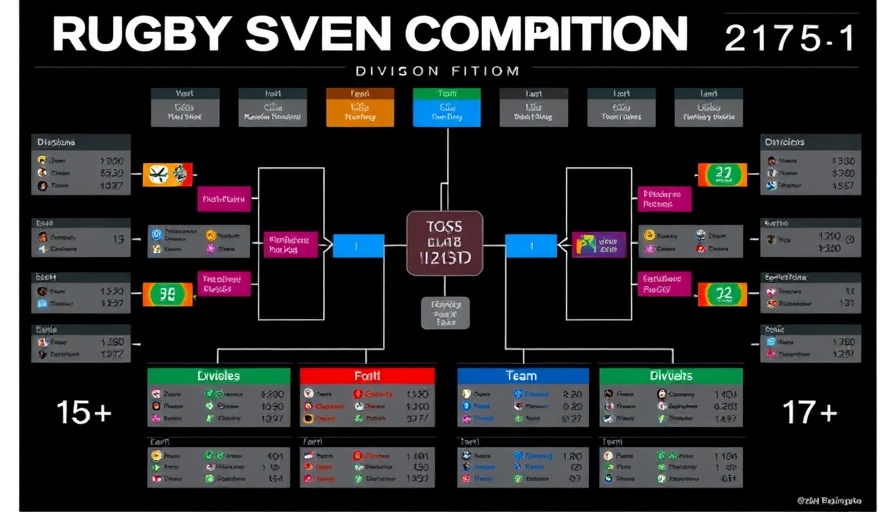
Rugby Sevens: A Bold Leap Towards Sustainability
The recent reformation in Rugby Sevens is not just a structural change but a strategic pivot aimed at fostering the long-term sustainability of the sport. World Rugby’s new model, aimed at enhancing the game before the LA 2028 Olympics, introduces a three-division season format that is set to engage fans and expand the sport's global footprint.
Understanding the New Competition Structure
Under the new SVNS (Sevens World Nations System) format, there are three divisions that cater to varying levels of competition:
- Division 1: This comprises eight men’s and eight women’s teams competing across six major events.
- Division 2: Features six teams per gender in a more compact series of three events, enabling greater competitive balance and excitement.
- Division 3: A standalone Challenger event that opens doors to eight teams per gender, promoting inclusivity by allowing teams from regional competitions to shine.
This structured yet inclusive approach aims to stimulate participation while fostering potential future stars in the game.
The Push for Financial Sustainability
World Rugby is backing this initiative with an impressive annual investment of £10 million, significantly rewarding participation by teams to motivate them financially and enhance competition quality. Sam Pinder, the general manager of World Rugby, believes that this evolved model not only secures excitement but also delivers stability for rugby unions globally. He stated, "While change can be difficult, this evolution ultimately secures a sustainable advancement of a sport that has proven to be a hit at the Olympic Games." This investment underlines Rugby Sevens' capacity to engage a younger audience, urging them to explore pathways through its thrilling gameplay.
Why Rugby Sevens Matters
This renewed focus on Rugby Sevens marks an essential chapter in the sport’s evolution. For athletes, from young school players to established professionals, it represents a unique opportunity for growth.
The engagement of national unions through the SVNS opens avenues for fresh talent to emerge, potentially reshaping the future of rugby and broadening its appeal. Fans can expect to see high-stakes matches as teams vie for world champion status across the series events.
Cultural Impact and Community Connection
Rugby Sevens is increasingly becoming a symbol of community spirit and national pride, especially in countries where rugby remains a backbone of regional identity, such as South Africa. The success of teams like the Springboks has inspired local youth involvement, fostering grassroots participation in sports. Events showcasing this shorter and faster format draw crowds, thus supporting local economies and inspiring the next generation of athletes.
Looking Forward: Predictions and Insights
As the 2028 Olympics approach, the growing visibility of Rugby Sevens is expected to translate into a multitude of opportunities for athletes, sponsors, and communities alike. With the anticipated surge in viewership and participation, rugby could see an upsurge that parallels other major global sports.
However, stakeholders must remain vigilant about maintaining competitiveness and ensuring that the evolution of the sport translates into greater participation at all levels, especially among underrepresented groups and emerging nations.
Join the Conversation
As rugby enthusiasts, athletes, and sports fans, it's crucial to engage in discussions surrounding the evolution of Rugby Sevens. Igniting passion for the game and recognizing its personal and community significance can help propel the sport into a new era. Whether you are watching at the stadium or supporting your local team from home, your voice matters in shaping the future of Rugby Sevens.
Let's celebrate the thrill of the game, support our athletes, and share in the stories that make Rugby Sevens not just a sport but a vibrant cultural phenomenon. Get involved and discover how you can play a role in this exhilarating journey towards LA 2028!
 Add Row
Add Row  Add
Add 




Write A Comment